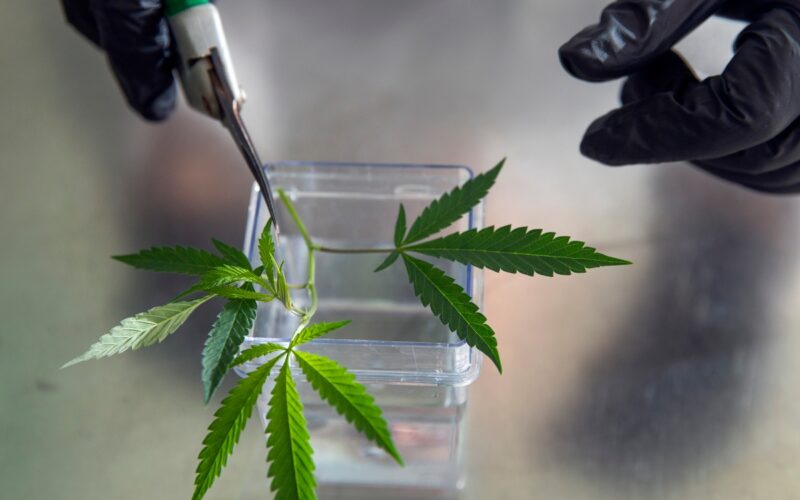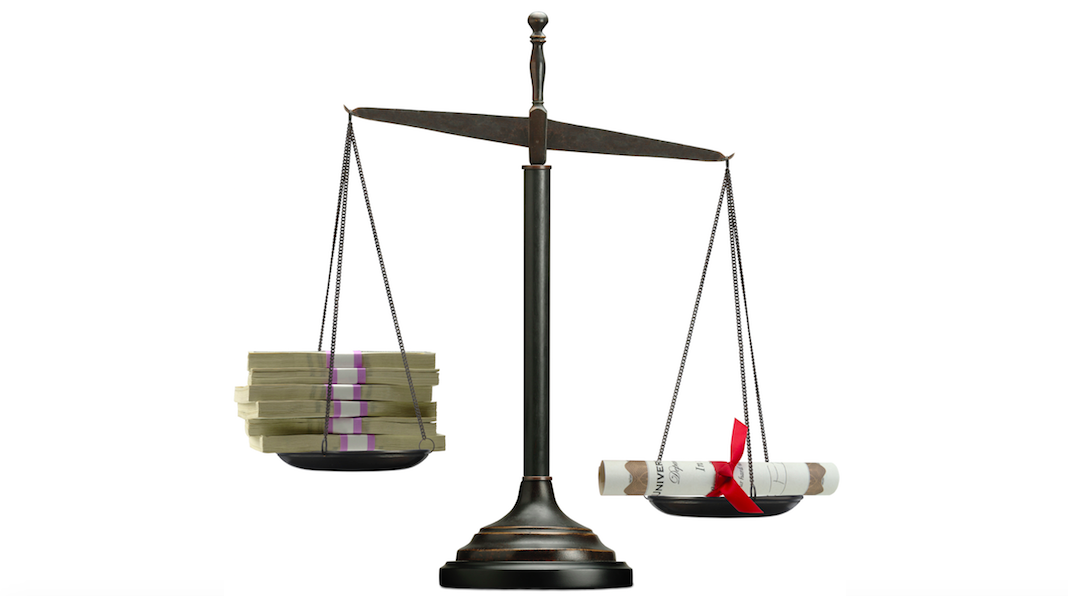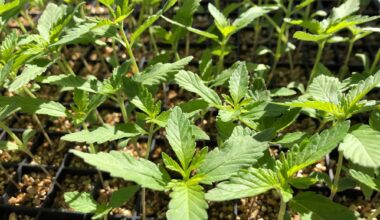[ad_1]
High-CBD plants inherit approximately 90% of their genes from marijuana, according to a new cannabis genomics study by the University of Minnesota and hemp breeding company Sunrise Genetics.
The collaborators assembled a complete genome from a new cannabis variety and also examined several different cannabis varieties. They found that by breeding high-THC marijuana plants with lower-THC hemp varieties, breeders can develop new varieties that produce high levels of CBD.
But this breeding feat “poses a challenge” — and a big risk for farmers, according to study co-author CJ Schwartz of Sunrise Genetics.
“The genes that allow for the production of CBD are also a bit ‘leaky,’” Schwartz said in a statement.
“This can result in about 5% of the product ending up as THC instead of 100% CBD.”
Farmers who grow these high-CBD varieties to maturity have a much higher risk of their crops going hot, crossing the federal legal limit of 0.3% total THC.
“These high-CBD plants are genetically marijuana for the most part and they can’t be expected to meet the legal definition of industrial hemp in every situation,” said study co-author George Weiblen, a professor at the University of Minnesota.
“This means that CBD products — such as flowers, extracts and edibles — that are labeled ‘hemp’ could be incorrectly labeled and falsely branded. Fiber hemp and products made from hemp seeds, however, are drug-free.”
The full study is published in the New Phytologist, an online academic journal.
Weiblen and a team of researchers also developed a genetics test in late 2020 that can predict whether a cannabis plant will produce mostly CBD or THC molecules.
[ad_2]
Source link
Medical Disclaimer:
The information provided in these blog posts is intended for general informational and educational purposes only. It is not a substitute for professional medical advice, diagnosis, or treatment. Always seek the advice of your physician or other qualified healthcare provider with any questions you may have regarding a medical condition. The use of any information provided in these blog posts is solely at your own risk. The authors and the website do not recommend or endorse any specific products, treatments, or procedures mentioned. Reliance on any information in these blog posts is solely at your own discretion.







